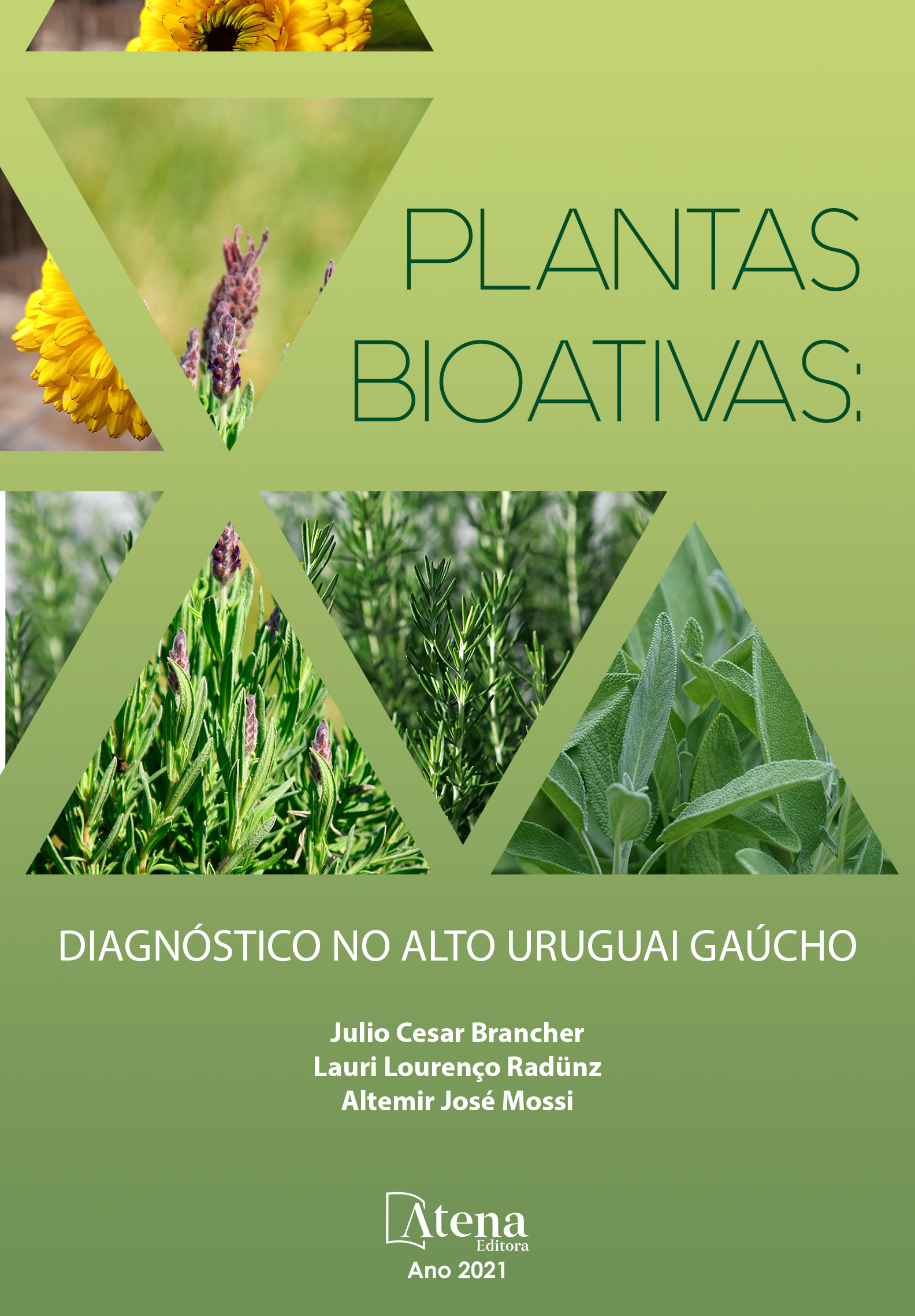
PLANTAS BIOATIVAS: DIAGNÓSTICO NO ALTO URUGUAI GAÚCHO
O mundo tem voltado sua atenção para a sustentabilidade e existência futura do planeta e o bem-estar das pessoas. Neste contexto estão as plantas bioativas, que podem auxiliar na manutenção da saúde e ser uma opção de renda aos agricultores familiares do nosso País. O Brasil possui uma das maiores biodiversidades do mundo e vasto conhecimento popular sobre as plantas. O Alto Uruguai Gaúcho ainda preserva boa parte da vegetação nativa e os agricultores da região mantém tradição de cultivo e uso de plantas bioativas. Apesar disso, dois aspectos são evidentes: a falta de interação entre o conhecimento popular e o científico em torno das plantas bioativas e a falta de uma visão empreendedora dos agricultores em torno dessa cadeia produtiva. Este livro e resultado de uma dissertação de mestrado que realizou um diagnóstico das planta bioativas na região do Alto Uruguai Gaúcho com foca na possibilidade de estruturar e organizar a cadeia produtiva como alternativa de geração de emprego e renda para os agricultores. O estudo foi embasado em questionários aplicados à produtores, consumidores e indústrias de transformação, bem como entrevistas com pessoas da região com grande conhecimento sobre o assunto. Com base nos resultados e informações obtidos, pode-se verificar que, os agricultores mantêm grande conhecimento sobre as plantas bioativas, porém não têm olhar comercial sobre as mesmas. Foi constatado que o êxodo rural, o envelhecimento no campo e o desinteresse dos jovens põe em xeque a viabilidade de estruturação futura da cadeia. Por fim, concluiu-se que a cadeia produtiva das plantas bioativas na região é completamente desestruturada, e só poderá vir ser uma alternativa para os agricultores familiares, no médio e longo prazo, isso, caso haja mudança do foco da orientação técnica, do ensino, da pesquisa e das políticas públicas para o setor, como a adoção efetiva da fitoterapia no Sistema Único de Saúde (SUS).
PLANTAS BIOATIVAS: DIAGNÓSTICO NO ALTO URUGUAI GAÚCHO
-
DOI: 10.22533/at.ed.119210610
-
Palavras-chave: Agricultura familiar, plantas medicinais, cadeias produtivas
-
Keywords: Family farming, Medicinal plants, commodity chains
-
Abstract:
The world has been focused its attention on sustainability, the future existence of the planet, and the people’s welfare. This search takes into consideration, not just the economic but also the social and environmental aspects. In this context, if preserved, the bioactive plants can help maintain health, which is the most important, and an option of income, especially for smallholding farmers of our country. Brazil is one of the countries with the biggest biodiversity on the planet and enormous popular knowledge, the growth and the use of these plants. The Alto Uruguai Gaúcho shows a good condition for conserving a good deal of native vegetal essences. Also, many peasants in the rural area have wide knowledge about these plants related to their growth and use. Despite this favorable screen, two aspects must be considered: the lack of interaction between the popular and scientific farmer’s knowledge about the bioactive plants and their poor enterprising view about the productive chain. This book is the result of a master's thesis that carried out a diagnosis of bioactive plants in the Alto Uruguai Gaúcho region, focusing on the possibility of structuring and organizing the production chain as an alternative for generating employment and income for farmers. The study of the productive chain was based on questionnaires handed to farmers, consumers, and industries and to people of the region who know the subject. Based on results and information, it is possible to verify that even though the farmers have great knowledge about the bioactive plants, they don’t have any commercial knowledge about them. It was also noticed that the rural exodus, the farmer’s aging, and the lack of young interest in the subject might break the future of the productive chain. Finally, it is possible to conclude that the productive chain of the bioactive plants in the region is completely disorganized and may be an alternative to the familiar peasants just in the medium and long terms. If, of course, with the support of technical orientation, teaching, researches, and public investments, and the effective adoption of Phytotherapy at SUS (Brazil).
-
Número de páginas: 58
- Julio Cesar Brancher
- Lauri Lourenço Radünz
- Altemir José Mossi


